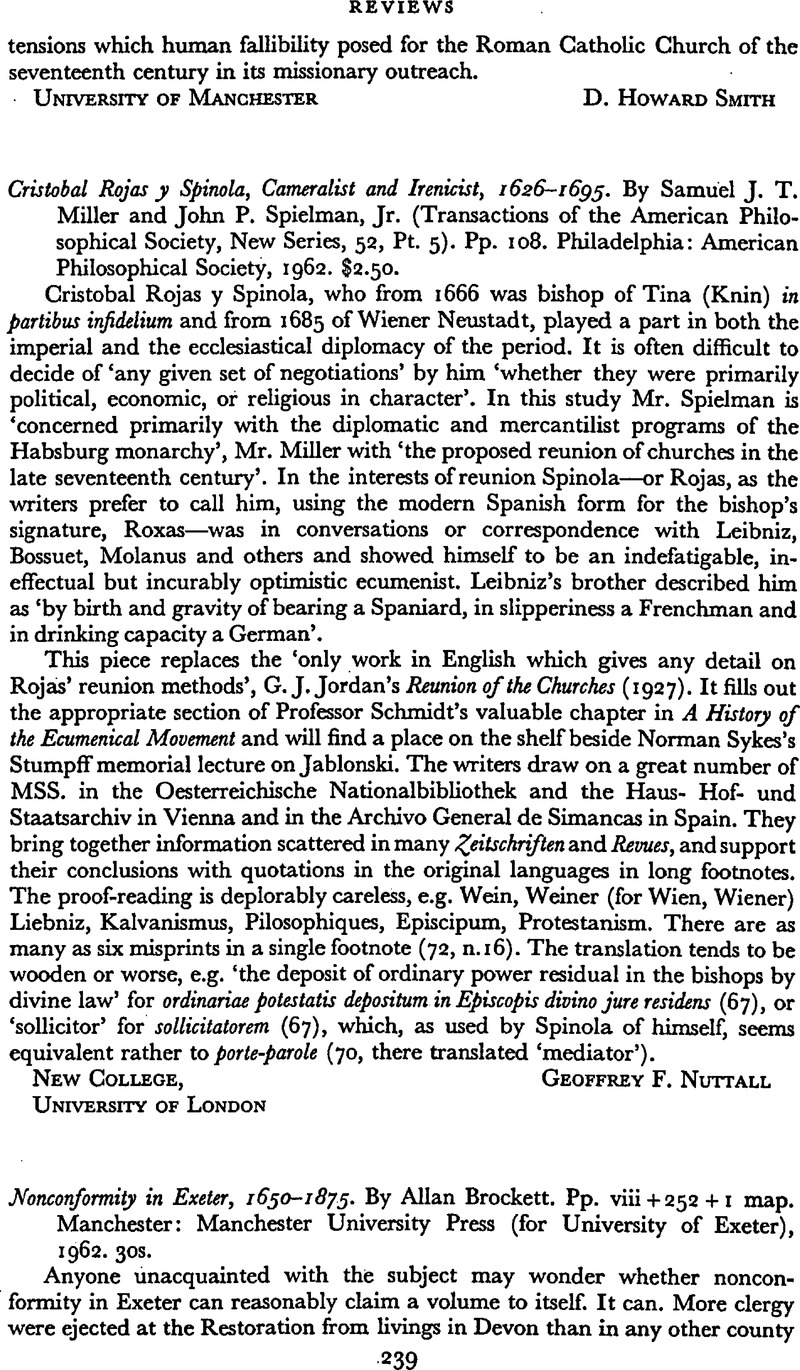No CrossRef data available.
Article contents
Nonconformity in Exeter, 1650–1875. By Allan Brockett. Pp. viii + 252 + 1 map. Manchester: Manchester University Press (for University of Exeter), 1962. 30s.
Published online by Cambridge University Press: 25 March 2011
Abstract

- Type
- Reviews
- Information
- Copyright
- Copyright © Cambridge University Press 1963
References
page 240 note 1 Lest it be thought that Mr. Brockett concentrates unduly on this theme, an assembly of scattered pieces on another subject will illustrate the richness of the quarry. The first Dissenters in Exeter to introduce an organ were the Unitarians in 1813, when it was laid down that there were to be ‘no Voluntaries’ and ‘no anthems’ (174). The Congregationalists installed an organ in 1829 (206). In 1830 the Baptists, who till 1759 allowed no singing at all, even of psalms, save at the Lord's Supper (no); decided that ‘All Instrumental Music shall be done away’ (215); not till 1867–8 did they report that ‘our service of song has been considerably improved by the erection of an Organ’ (220).
page 241 note 1 The ‘Exeter Assembly’ (as this body came to be known), which in 1713 included fifty-seven ministers, has still a shadowy existence, its membership being now confined to the minister of George's Meeting and five other Devon Unitarian ministers. Its Minutes for 1655–9 were printed in the Transactions of the Devon Association for 1877. It is good to know that Mr. Brockett has an edition of the Minutes for 1691 to 1717 in hand.


